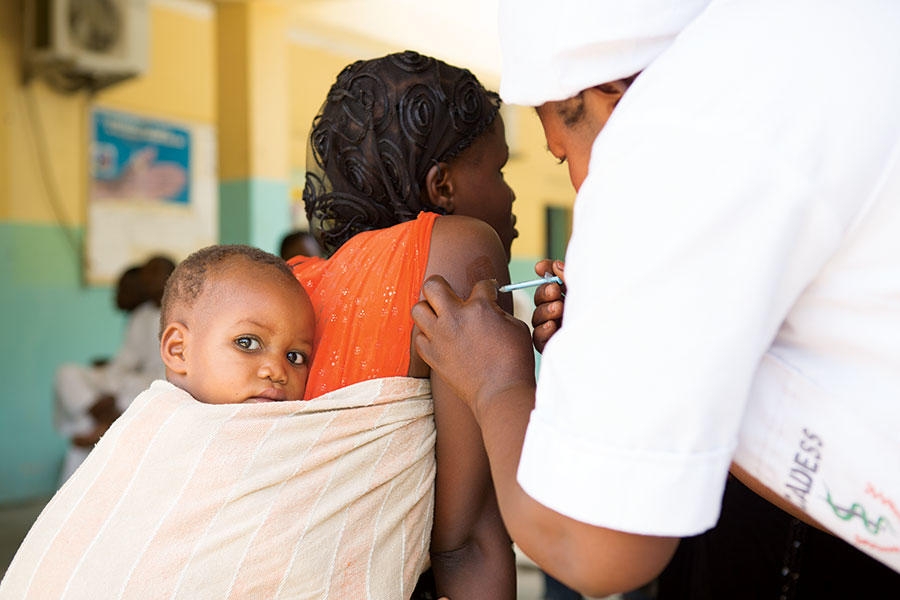Maternal and Neonatal Tetanus is South Sudan’s ‘silent killer’

In South Sudan 91% of pregnant women give birth in their homes without access to a skilled birth attendant and often in unsatiary conditions.
South Sudan has one of the world’s highest levels of infant mortality with 59 in every 1,000 live births resulting in infant deaths. The country also has one of the highest rates of maternal mortality with 789 per every 100,000 live births.
Due to South Sudan’s high level of infant and maternal mortality only 5% of Maternal and Neonatal Tetanus cases are reported, causing health officials in the country to label it a ‘silent killer’.
Paul Oyik Okot, a health officer at the Wau field office, South Sudan commented:
“MNT is a silent killer because within days of a child’s birth in unsanitary conditions, with the use of contaminated instruments and dressing such as razor blades, cow dung or ash, even the healthiest newborns die"
Maternal and Neonatal Tetanus (MNT) is one of the most common life threatening effects of births when they take place in unhygienic circumstances and without the necessary sterilisation.
Prevalence of MNT is also an indicator of inequity in access to immunization and other maternal, newborn, and child health services.
Despite this, MNT is an easily preventable disease. MNT can be prevented through hygienic delivery and cord care practices as well as through inexpensive vaccinations.
South Sudan is one of the countries in the world where mothers and children are most at risk of MNT.
UNICEF’s Maternal and Neonatal Tetanus Elimination (MNTE) initiative aims to reduce cases to 1 in 1000 births, so that it is no longer a major public health problem. Tetanus cannot be eradicated, but through immunization and promotion of hygienic deliveries and care practices, MNT can be eliminated.
Paul Oyik Okot added:
“All efforts are underway to prevent the disease by ensuring that all women of child bearing age are immunized with five doses of the tetanus vaccine. This will protect both the newborn and the mother”
In South Sudan’s most recent campaign in November 2017, 600 healthcare workers were raising awareness of the disease and driving vaccinations across the country.
Monika Guido, a social mobilizer in the Hai Jalaba in Wau County of Sudan Commented:
“Initially, women blatantly refuse to be vaccinated. Myths are easily spread that the vaccine is for family planning and they feared coming to the posts”
“However, after three rounds of rigorous campaigning and counselling, they are now able to see the benefits of the vaccine. Girls going to school readily took the vaccine and this further instilled confidence in other women.”
UNICEF has trained 201 vaccinators and employed them across the Western Bahr El Ghazal region of South Sudan to provide vaccinations to women. The most recent campaign in November 2017 reached 165,337 women and has ensured at least 48% of all women in the child bearing age in the region have been vaccinated.
If you’d like to stay informed on the latest updates in aid and development, please sign up for the AIDF newsletter.
Image credit: Paul Bettings














-115x71.jpg)